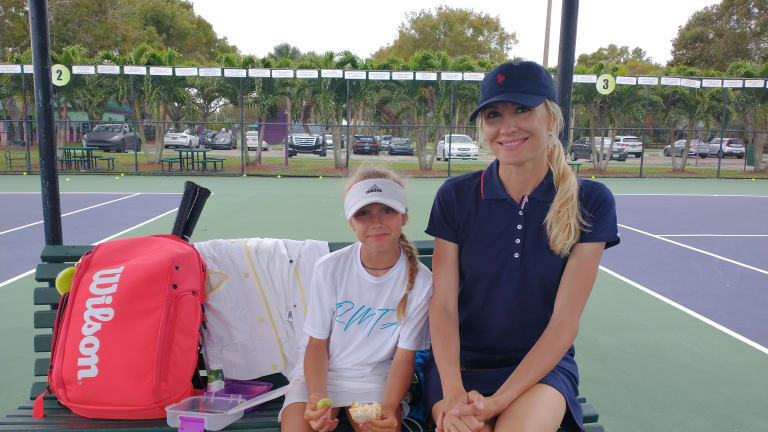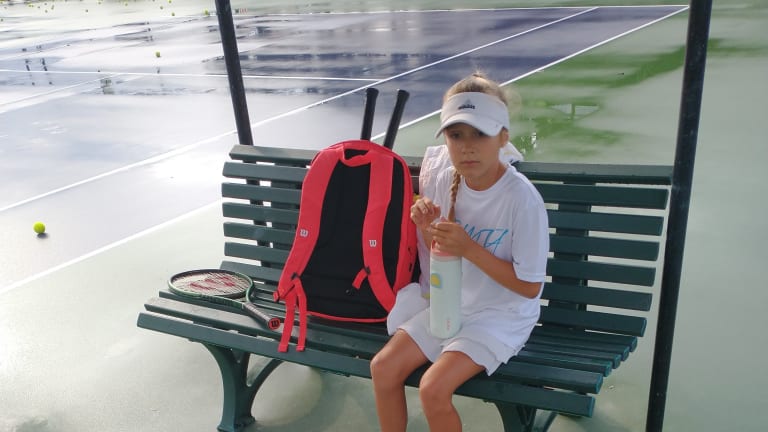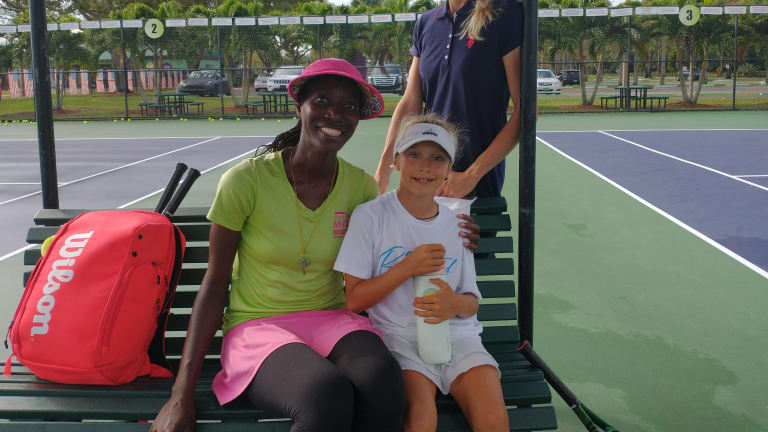Last summer, Mark Weinsier, a teacher in New York City’s Grace Church School, contacted TENNIS.com reporter Peter Bodo. Weinsier found me through a friend who follows tennis and wanted to help out. Weinsier asked Bodo if he could look into and perhaps help a family that had fled Ukraine in the wake of the Russian invasion.
The parents, Dmytro and Maryna Hranchar, had a daughter Vlada who was a tennis prodigy. By age 5, she had been ranked No. 1 in Ukraine in the 10-and-under division. Vlada already had over 100,000 followers on Instagram, which had resulted in a number of invitations to train in the United States.
After a harrowing escape from Ukraine, the Hranchars made their way to Vermont. But they soon realized that despite the kindness and charity of new friends, the state was off the tennis grid. With meager resources, they weren’t sure where to turn.
Bodo agreed to help. He established a relationship with the family (with help from Weinsier, a Russian-speaker) and began exploring possible options. Ultimately, he was able to convince legendary coach Rick Macci—who has worked with, among others, Jennifer Capriati, Williams sisters, Andy Roddick and Sofia Kenin—to take a good look at Vlada.
The tryout earned Vlada a scholarship to Macci’s famed tennis academy in Boca Raton, Fla. at the end of last year. Bodo recently went to visit and finally meet the family. This is his report. [Special thanks to Mark Weinsier in New York, and to Igor Mamut in Boca Raton, for help with translation from Russian.]


